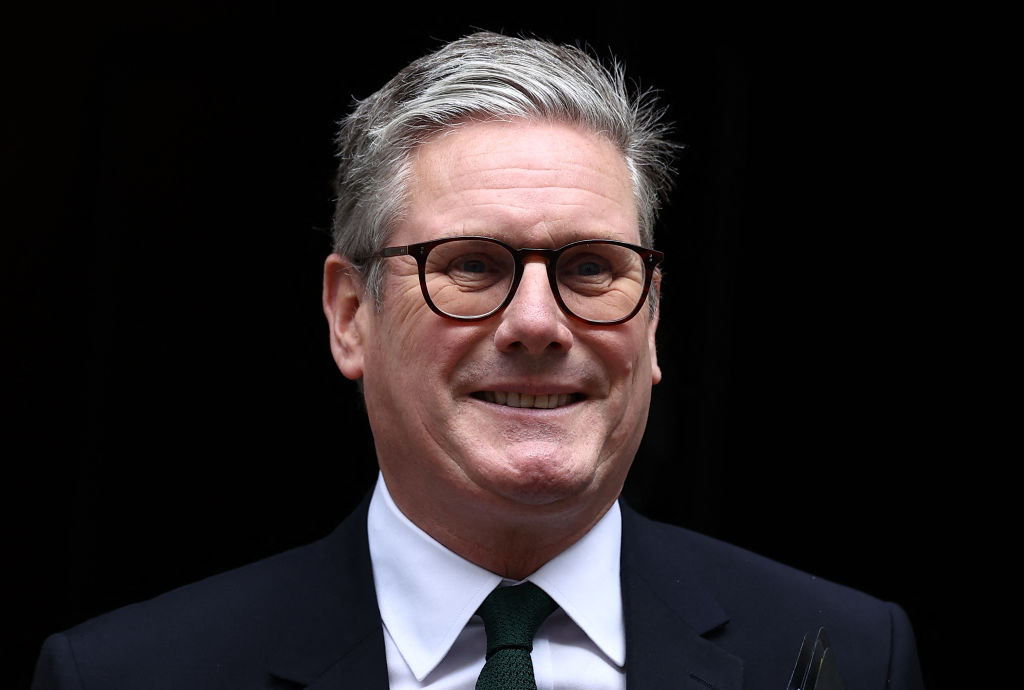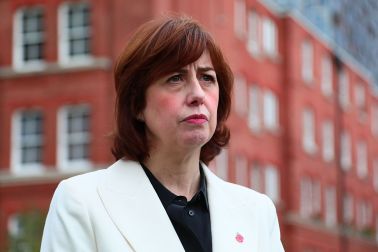It’s not just the Tories facing a big vote next week. Across the House of Commons, MPs will be choosing which of their number should chair the 26 select committees up for grabs. Every MP gets a vote but only backbenchers can stand: nominations close on Monday with voting done on Wednesday. Positions are allocated in line with the election result. Labour’s gargantuan majority thus ensures that they chair 18 of the 26 committees. The Tories are reduced to five with the Lib Dems awarded three.
Select committees are another reminder that, for all the recent attention on the smaller parties, parliamentary institutions can often help the big ones. The four Green MPs, for instance, will not get a seat on a single select committee. The same is true of Reform, much to the disappointment of Lee Anderson, who loses his place on the Home Affairs panel. His colleague Richard Tice says that he and his fellow Reform MPs will not be voting for the select committee chairs ‘in protest at this injustice’. Layla Moran, the likely health chairman, will offer a useful way for the Lib Dems to attack the government from the left.
Starmer’s landslide and powers of patronage mean there are few contests likely to trouble him
For the Conservatives, it is a battle of the greybeards. With just 121 MPs, their frontbench is a mix of conscripts and volunteers. Some of the 26 new Tories from this year’s intake meanwhile seem unfussed by select committees, preferring the drama of the leadership question. ‘I couldn’t give a damn’, remarks one. Candidates for the five select committee chairmanships are therefore mostly former cabinet ministers unlikely to secure preferment under Rishi Sunak’s successor. Almost of all of them are yet to declare for a Tory leadership candidate: perhaps in a bid to maximise their own chances.
On Home Affairs, David Mundell is battling it out with Karen Bradley for perhaps the most-high profile role of the quintet. Caroline Dineage looks unopposed for Culture but that cannot be said for two other committees. Both Public Accounts and Public Administration feature a relatively high number of applicants, with Bernard Jenkin dropping out of the former race to stand in the latter. He will face Simon Hoare for the spot while David Davis is against John Glen and Geoffrey Clifton-Brown for Public Accounts. The fifth select committee is Standards, between Alberto Costa and Jeremy Wright: the latter begins his email to colleagues thus: ‘Not another campaign email…’
However, the most interesting thing about next week’s elections is what they say about the parliamentary Labour party. The last time Labour was in government, select committee chairs were appointed, not elected. Starmer’s landslide and powers of patronage mean there are few contests which are likely to trouble him. But the race for International Development could be one. Supporters of Sarah Champion – a staunch critic of China’s human rights abuses – fear a government whips’ campaign against her. ‘Starmer really doesn’t seem to want people in his club having any position at all’, says one, though a government source rejects this characterisation.
Foreign Affairs meanwhile offers up an intriguing test between Emily Thornberry, unceremoniously axed from Starmer’s frontbench, and Dan Carden. Such a post can be useful in shaping both parliamentary attitudes and government policy, as demonstrated by Tom Tugendhat and Alicia Kearns. Both played their part in the Sinosceptic trend of the Commons from 2019 to 2024.
Hanging over many of these contests is a fear among returning Labour MPs that the massive 2024 intake will act as a block on their contemporaries. Such fears have not been alleviated by the decision of some new MPs like Mike Tapp and David Pinto-Duschinsky to put themselves forward to chair committees: Shaun Davies has even resigned as a parliamentary private secretary after less than eight weeks to stand instead for Housing. One older MP says that they are, as a general rule, against ‘the newbies’ on the grounds of ‘their sheer cheek’ and the ‘chance they were put up by No. 10 as more pliable’.
One person who certainly does give a ‘damn’ about these elections is Keir Starmer. He has repeatedly shown a preference for choosing select committee chairmen to sit on his Labour front bench, from Rachel Reeves and Yvette Cooper to Stephen Timms and Darren Jones. He will also have learned from Boris Johnson’s premiership, in which the latter’s various backbench critics like Tom Tugendhat were elected to prominent positions from which to assail him. Under Johnson, Liaison Committee meetings – the annual grilling between the PM and the select committee chairs – resembled less an evidence session than a hostile interrogation.
Such a scenario seems unlikely this time around. But the likelihood of faultlines between the 2024 vintage and past intakes is why Alan Campbell – a veteran of the Whips’ Office under Gordon Brown – might soon recall with fondness the days when committee chairmen were appointed, not elected.







Comments